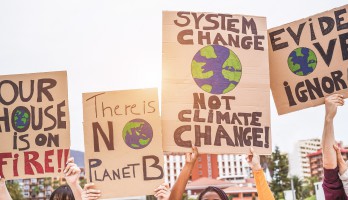SME manufacturers are helping cut 3850 tonnes of CO2 emissions through a programme enabling business-university collaborations to tackle climate change.
Eco-I North West, a large-scale research and development initiative, supports small and medium-sized companies from any sector to develop low carbon innovations in partnership with six of the region’s leading universities – Lancaster, Central Lancashire, Cumbria, Liverpool, Liverpool John Moores and Manchester Metropolitan.
Launched in 2020, the three-year programme, which is part funded by the European Regional Development Fund (ERDF), is now working with more than 180 SMEs across the region to create new sustainable technologies, products and services to accelerate the green economic recovery.
With a year remaining, Eco-I NW is on target to help 369 businesses to develop 135 new innovative solutions and remove 3850 tonnes of CO2 from the atmosphere, supporting the UK government’s target of achieving net zero greenhouse gas emissions by 2050.
Coniston Stonecraft, a manufacturer of slate products based in Coniston, Cumbria, are working with the University of Cumbria to decarbonise its production, packaging and distribution processes.
Brendan Donnelly, Managing Director, commented: “The biggest challenge for us has been plastic bubble wrap in our packaging. We now use recycled bike boxes from local bike firms and waste cloth from a local materials distributor, otherwise destined for landfill. Not only has the change improved our eco-credentials but it has reduced in-transit breakages.
“I would encourage all businesses in the North West to get involved in this initiative. Expert advice can help you build your brand, save money and, in doing so, save the environment.
“We are just a micro business and there are millions like us out there. If we can all play our part in driving low carbon innovation in our sectors, that little difference will amount to a big change.”
Radwraps, based in Birkdale, manufactures recyclable, antibacterial coated clinical poster systems as an alternative to harmful plastic laminating sheets. It worked with Liverpool John Moores through Eco-I NW on a project to illustrate the impact the solution could have on the NHS and switching from its current process would save almost 250 tonnes of CO2 per year and more than one million hours.
James Maddocks, Director, explained: “Plastic laminating sheets are extremely bad for the environment. Paper and plastic are both recyclable in their own form. Combining the two creates a landfill only option at end of use, slowly degrading over 100s of years polluting our wildlife, waterways and children.
“From start to finish Eco-I NW has been fantastic, from initial research through to end use case of the numbers, modelling and forecasting potentials with guidance and advice throughout.”
My Medical Mask, based in Bolton, was created by three dental clinicians in direct response to the need for PPE during the pandemic. It is developing a new medical grade, reusable and transparent respirator mask made from biodegradable materials.
Dr Usman Riaz, Director, added: “We are dedicated to finding viable, sustainable and eco-friendly alternatives to single-use PPE and we firmly believe our innovation could be a real game-changer for the healthcare sector.
“The development of this mask will dramatically reduce the carbon footprint of the sector, reduce waste, and significantly improve communication between patients and practitioners.
“The research and development work carried out in partnership with Lancaster University has been extraordinary and we would encourage other SMEs to explore the opportunities.”

